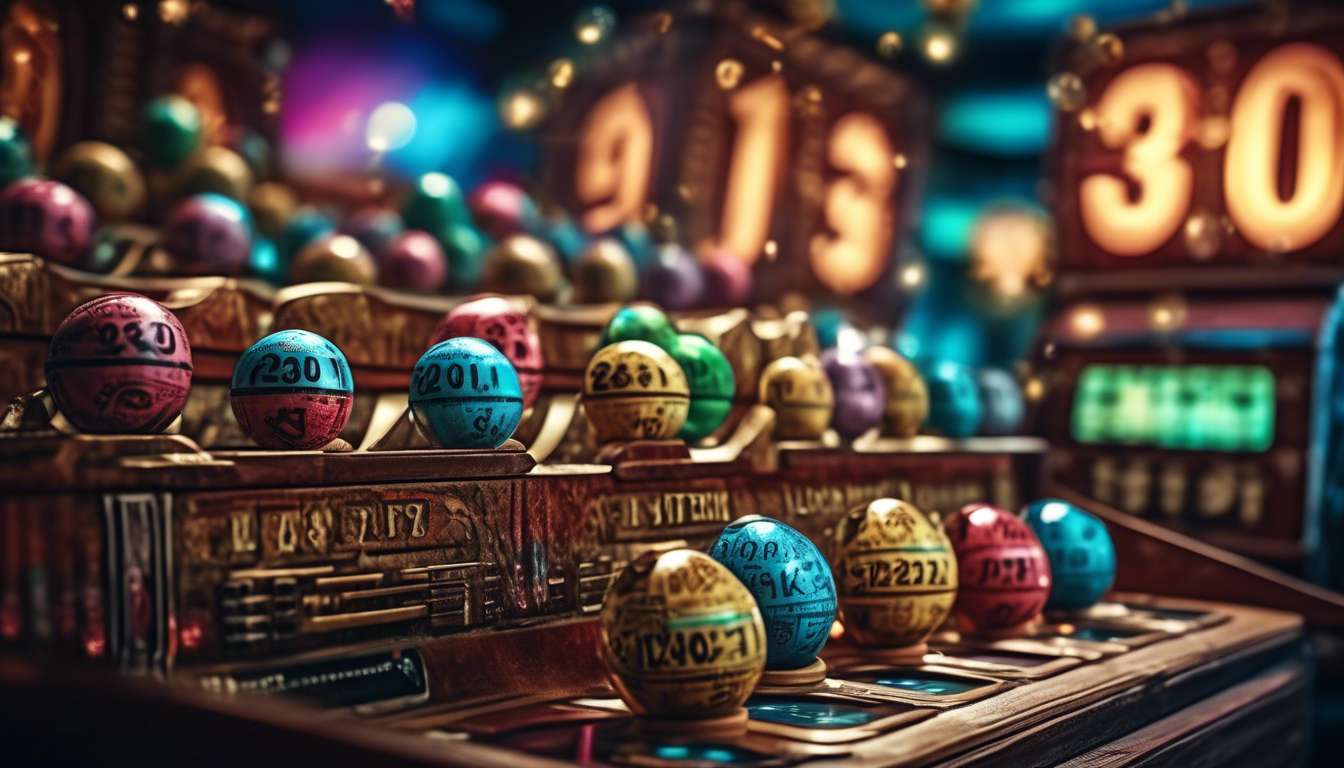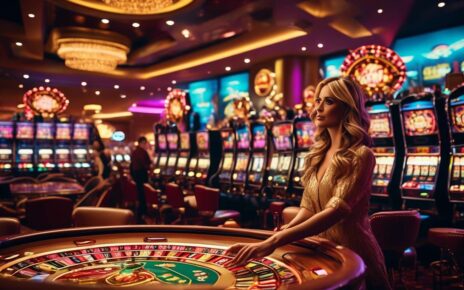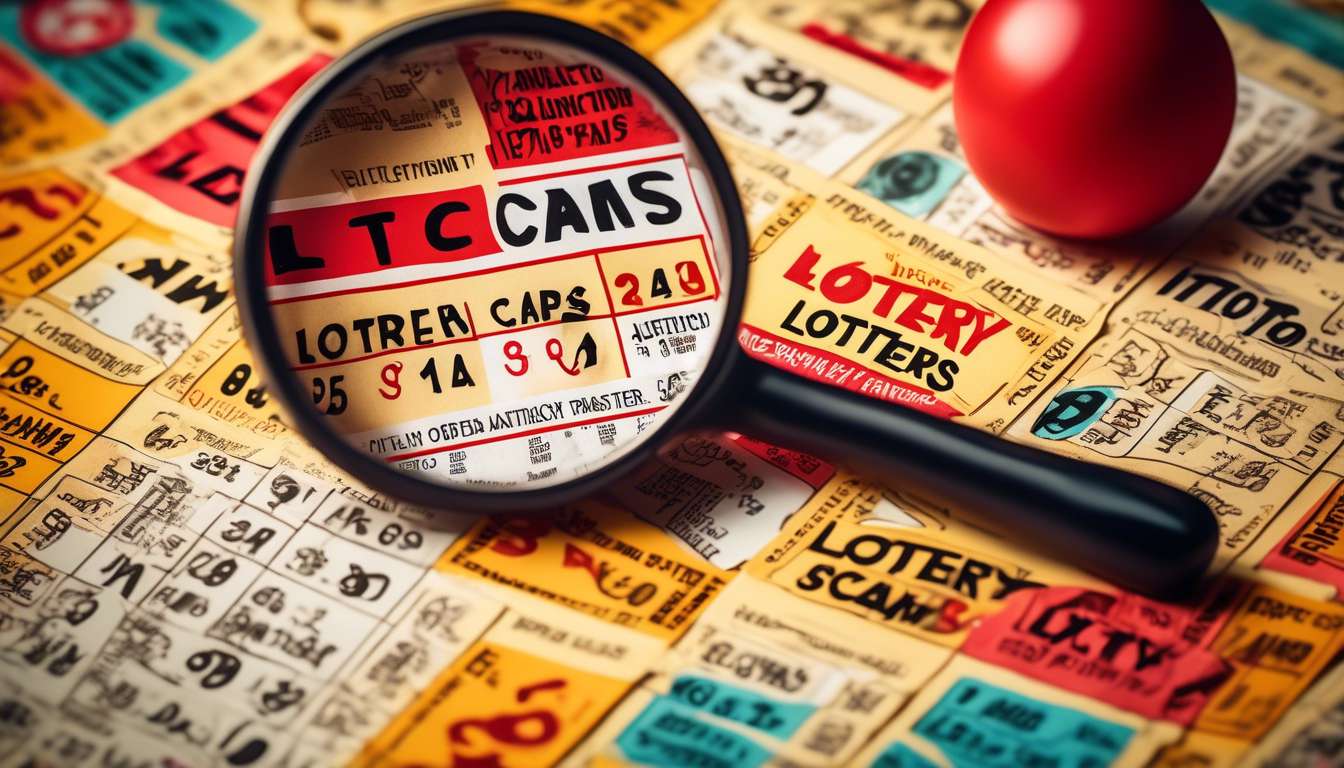Throughout history, we have always been fascinated by the allure of luck and chance. Together, we have witnessed the evolution of lotteries from simple drawings to the complex systems they are today.
Our journey begins thousands of years ago, where ancient civilizations first employed rudimentary forms of lotteries as a means of decision-making and distribution of resources.
Fast forward to the present, and we find ourselves immersed in a world where lotteries are a multi-billion dollar industry, capturing the imaginations of millions who dream of striking it rich.
We have seen how technology has revolutionized the way lotteries are conducted:
- From mechanical draws
- To digital platforms
These advancements have made participation more accessible than ever before.
As we explore the ultimate lottery timeline, we will uncover how:
- Societal changes
- Technological advancements
- Human nature
These factors have shaped the lottery into an enduring phenomenon, reflecting our perpetual desire for fortune and the thrill of the unknown.
Ancient Origins
Lotteries trace their roots back to ancient civilizations, where they were used for distributing property and funding public projects. We, as part of a community that loves to connect with history, find it fascinating to look at how the lottery has evolved over time.
In ancient China, keno slips were used around 205 BC, marking an innovative way to fund state projects, including the Great Wall. Similarly, ancient Rome held lotteries at lavish parties, offering prized possessions to lucky winners. These early lotteries were more than mere games; they were crucial to societal development.
As we delve into the evolution of lotteries, we see how they’ve been shaped by the needs and imaginations of people across different cultures.
- The lottery was an early form of innovation that brought communities together.
- By participating, people shared dreams of winning and contributing to the greater good.
Our fascination with this ancient practice reflects a desire to belong to something that transcends time, binding us to our collective past.
Medieval Lotteries
During the medieval period, lotteries gained popularity across Europe as a means to fund large-scale projects and charitable causes. This innovative approach was collectively embraced, recognizing its potential to unite communities and achieve common goals.
With the evolution of the lottery system, towns and cities came together to pool resources and share in the excitement of chance. These lotteries were not just about winning; they also fostered a sense of belonging and worked towards a better future for everyone involved.
We saw towns using the funds raised through lotteries to:
- Construct bridges
- Fortify defenses
- Support the needy
The lottery became a symbol of communal effort, illustrating shared aspirations and ingenuity. It was an era where our ancestors demonstrated remarkable innovation by turning a simple game of chance into a powerful tool for social and economic development.
As we look back, we can appreciate how these medieval lotteries laid the groundwork for the more sophisticated systems that would follow in later periods.
Renaissance Innovations
During the Renaissance, lottery systems underwent a remarkable transformation, becoming more sophisticated and intertwined with emerging financial and cultural developments. This period marked a shift from simple fundraising mechanisms to intricate financial instruments.
Key innovations during this era included:
- The development of state-sponsored lotteries, reflecting the growing influence of centralized governments.
- The increasing public interest in games of chance.
We embraced these changes as they brought communities together, offering a shared sense of excitement and hope. The innovations in lottery systems during this period included:
- The introduction of numbered tickets and standardized draws, which enhanced transparency and trustworthiness.
- The use of lotteries to fund public works, such as infrastructure and art projects, further cementing their role in societal development.
These advances fostered a sense of belonging, as communities collectively participated in the pursuit of fortune and progress. The Renaissance truly marked a pivotal chapter in the evolution of lotteries, as it was not just about winning or losing but also about societal growth and cohesion.
19th Century Expansion
During the 19th century, lottery systems experienced a dramatic expansion as they became increasingly global and integrated into national economies.
Lotteries evolved from being local affairs to becoming essential components of economic growth and social infrastructure. This period marked a pivotal shift where innovation and regulation worked together to ensure that lotteries were both exciting and credible.
Key Changes in Lottery Systems:
- Introduction of standardized rules
- Establishment of national lotteries
- Emergence of new formats and prizes
These changes united communities in shared hopes and dreams, reflecting a collective desire for progress and prosperity. As lotteries spread across continents, they fostered a sense of belonging among participants.
The era of expansion laid the groundwork for modern lottery systems, transforming them into a beloved cultural phenomenon that continues to captivate the public’s imagination.
Modern Lottery Systems
Today, we see lottery systems leveraging technology and complex algorithms to offer unprecedented prizes and enhance security. This evolution in the lottery world has brought about innovations that not only increase our chances of winning but also make us feel like part of a global community.
With digital platforms, we can participate from anywhere, joining millions in this shared experience. It’s thrilling to think that we’re all chasing the same dream, united in hope and excitement.
We’ve witnessed lotteries evolve from simple number draws to sophisticated systems that ensure fairness and transparency. These innovations mean we can trust the process, knowing everything is secure and above board.
As a community, we find comfort in this reliability. The thrill of potentially life-changing wins bonds us, creating a shared narrative of anticipation and celebration. We’ve embraced these modern systems, not just for their advancements, but for the way they connect us, bridging distances and differences.
Technological Revolution
In recent years, we’ve witnessed a technological revolution transforming how we engage with lotteries, making them more accessible and secure than ever before. This evolution isn’t just about convenience; it’s about innovation that brings us closer together.
With the advent of online platforms and mobile apps, we’ve expanded the community of lottery enthusiasts beyond traditional boundaries. We can now participate from the comfort of our homes, sharing the thrill with friends and family, no matter where they are.
Our collective experience has been enhanced by technological advancements like blockchain, ensuring transparent and tamper-proof lottery draws. This innovation gives us peace of mind, knowing the games we love are fair and secure.
Moreover, personalized notifications and AI-driven recommendations make our lottery journey more engaging and tailored to our preferences.
Together, we’re embracing this new era where technology isn’t just a tool, but a bridge connecting us in our shared excitement and anticipation of winning big.
Globalization Impact
In our interconnected world, the globalization of lotteries has broadened participation, allowing people from diverse cultures to unite in the shared excitement of potential fortune.
As the lottery’s evolution continues, we’ve witnessed innovative ways to engage players worldwide. The digital age has played a crucial role in this transformation, enabling us to participate in international lotteries with just a click. This evolution fosters a sense of belonging as we all dream big, regardless of our geographical location.
Cultural Exchange and Community Building:
- The global reach of lotteries encourages cultural exchange, with people from various backgrounds coming together over a universal hope for prosperity.
- Innovation within the lottery industry has led to the creation of massive jackpots, drawing in participants from every corner of the globe.
- These shared experiences not only fuel excitement but also strengthen our global community.
As we connect with others through the lottery, we celebrate our differences while embracing the shared pursuit of a brighter future.
Future Trends
In the coming years, we’ll likely see a surge in immersive technologies and personalized experiences shaping the future of lotteries. As a community eager for innovation, we’re on the brink of an exciting evolution in how we play and engage with lotteries.
Virtual reality (VR) and augmented reality (AR) could transform our participation into a more interactive and social experience, bringing us closer together even when we’re miles apart.
The evolution of lotteries isn’t just about technology; it’s about fostering a sense of belonging among players. With personalized lottery experiences, we’ll feel more connected to the games and each other. By harnessing big data and AI, lotteries can tailor experiences to our preferences, making the thrill of winning more personal and communal.
Innovation will guide us forward, and together, we’ll redefine what it means to participate in lotteries. Let’s embrace this future, where every ticket isn’t just a gamble but a step toward deeper community connection.
What psychological effects do lotteries have on participants and winners?
Lotteries can evoke a range of emotions in participants and winners. For some, the thrill of anticipation and possibility can uplift spirits.
However, the aftermath of winning can bring about unexpected stress and challenges. Sudden wealth can lead to changes in:
- Relationships
- Lifestyle
- Mental well-being
It’s crucial to consider the psychological impact of lotteries on individuals to ensure they are equipped to navigate the complexities that come with such windfalls.
How do lottery funds impact public education systems in various countries?
Lottery funds significantly impact public education systems in various countries. They provide crucial support for schools, helping to improve facilities, resources, and programs for students.
Our community benefits directly from these investments as they enhance educational opportunities and create a more enriching learning environment for future generations.
Through lotteries, we all contribute to the betterment of our education system, fostering growth and development for our society as a whole.
What is the role of probability theory in designing modern lottery games?
In designing modern lottery games, probability theory plays a crucial role. It helps determine the odds of winning for each ticket, ensuring fairness and transparency.
By applying probability theory, game designers can:
- Create engaging and exciting lottery experiences.
- Maintain a balance between the chances of winning and the overall profitability of the game.
This ensures that players have a sense of anticipation and hope while participating in the lottery.
Conclusion
The Evolution of Lotteries
The journey of lotteries spans centuries, beginning from its ancient roots to the sophisticated, globalized systems of today. This incredible evolution highlights the adaptability and enduring appeal of lotteries across different cultures and eras.
Technological Advancements and Changing Trends
With the advent of technology, lotteries have transformed dramatically. The integration of digital platforms and online systems has made participating in lotteries more accessible than ever before.
The Future of Lotteries
The future holds exciting possibilities for lotteries, driven by continuous innovations and evolving consumer preferences. As technology advances, we can anticipate even more engaging and dynamic lottery experiences.
A Rich History and Endless Potential
Next time you purchase a lottery ticket, take a moment to appreciate the rich history behind it and the endless potential that lies ahead. The lottery is not just a game of chance; it’s a testament to human ingenuity and the enduring fascination with fortune.




